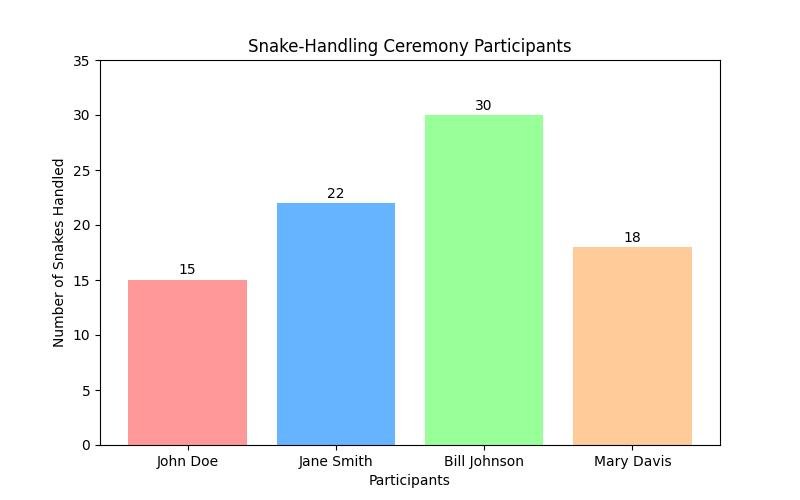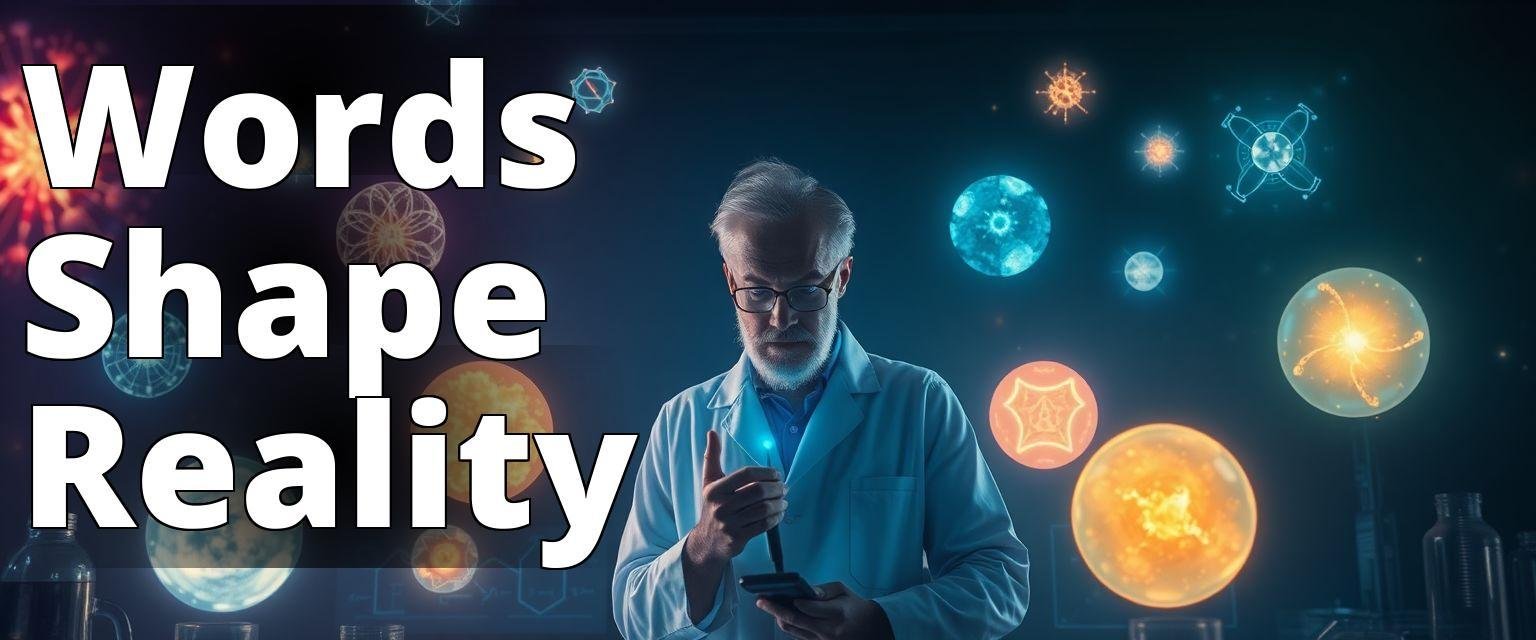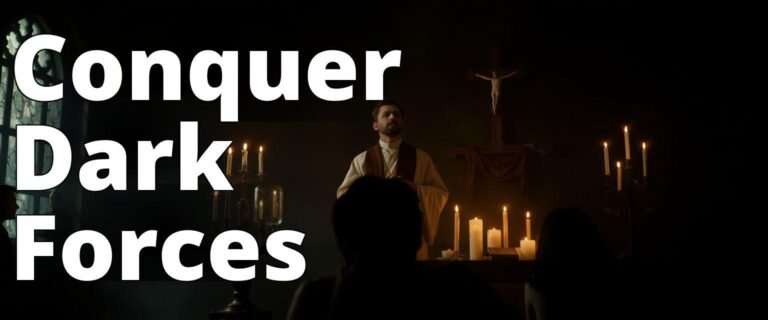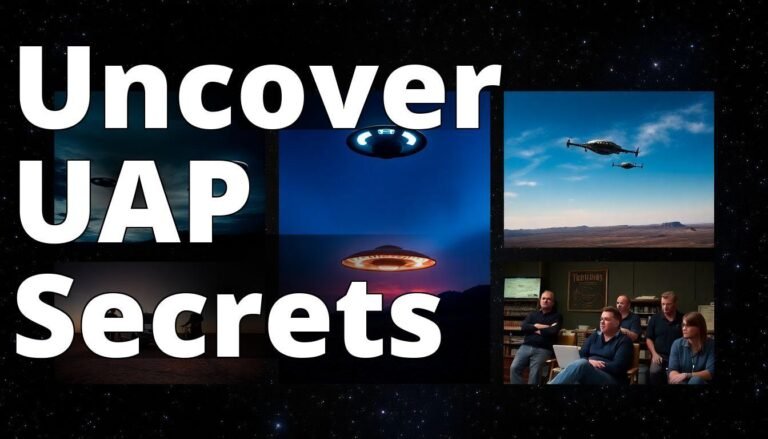The Physics of the Supernatural
What if the supernatural wasn’t just in our imagination but had a basis in reality that we simply haven’t understood yet? The documentary “The Physics of the Supernatural” peels back the layers of mystery surrounding a 1960s film, “The Holy Ghost People,” which delves into the enigmatic world of fire-and-brimstone snake-handling. This exploration is not just about faith or the occult but about how our words and beliefs shape our perception of reality. This documentary is a fascinating lens through which we can examine how language influences thought, and how belief systems can manifest seemingly supernatural phenomena.
Impact of Words on Thought
Discover how language shapes our perceptions and beliefs about the supernatural.
– Words can influence our cognitive processes, affecting how we interpret supernatural events and concepts.
– The way we articulate ideas can alter our emotional responses, making supernatural experiences seem more or less plausible.
– Language not only reflects our thoughts but also actively constructs our understanding of the supernatural world.
How Words Impact How We Think
Words are more than mere strings of letters; they are powerful tools that shape our thoughts and perceptions. Have you ever noticed how a single word can change your entire mood or outlook on a situation? This isn’t just psychological; it’s a testament to the profound influence language has on our cognitive processes.
The Role of Language in Perception
Language is the framework through which we interpret the world. According to the Sapir-Whorf hypothesis, the structure of a language affects its speakers’ worldview or cognition. This hypothesis suggests that people who speak different languages perceive and experience the world differently. This concept can be seen in the documentary’s exploration of religious language and its impact on followers’ beliefs and behaviors.
Research supports this idea. A study published in Cognitive Science found that bilingual individuals could offer different perspectives on the same event, depending on the language they used. This indicates that language can indeed shape our thoughts and perceptions in profound ways Cognitive Science Journal.
Personal Reflection
In my own experience, I’ve found that the words I use in my daily life can significantly impact my mindset. For example, reframing a “problem” as a “challenge” can transform my approach from one of defeat to one of opportunity. Similarly, the documentary shows how the language of faith can transcend the physical and enter the realm of the supernatural, influencing followers to handle venomous snakes without fear.

The Science Behind Belief and the Supernatural
The documentary suggests that what we perceive as supernatural might have a scientific explanation that we just haven’t discovered yet. Could there be a physical basis for phenomena that we currently attribute to the supernatural, such as telepathy or precognition?
Exploring the Unseen
Physics, particularly quantum physics, has shown us that the universe is far stranger than we ever imagined. Concepts like entanglement and superposition challenge our understanding of reality. These phenomena suggest that particles can be connected across vast distances and that they can exist in multiple states at once. Could similar principles explain supernatural occurrences?
In 2017, researchers at the University of Vienna demonstrated quantum entanglement between particles over 1,200 kilometers apart, which Einstein famously referred to as “spooky action at a distance.” This discovery opens the door to the possibility that our minds might one day be shown to interact with the universe in ways we currently deem impossible University of Vienna Research.
Personal Reflection
As a skeptic of the supernatural, I’ve always found comfort in the tangible and the measurable. However, the more I learn about quantum physics, the more I question my preconceptions. The documentary’s exploration of these scientific principles encourages viewers to keep an open mind and consider that there’s more to the universe than meets the eye.

The Historical Context of Supernatural Beliefs
The documentary also delves into the historical roots of supernatural beliefs, particularly those depicted in “The Holy Ghost People.” Snake-handling, for example, is not just a random act of faith but a deeply rooted tradition with historical significance.
The Origins of Snake-Handling
Snake-handling in religious ceremonies dates back to the early 20th century in the Appalachian region of the United States. It is based on a literal interpretation of Bible verses such as Mark 16:17-18, which speak of believers handling serpents without harm. This practice is a testament to the power of belief and the influence of religious language.
Historically, snake-handling has been met with skepticism and controversy, often viewed as a fringe practice. However, it highlights the lengths to which individuals will go when driven by faith and the power of words, as the Bible’s promises fuel their convictions.
Personal Reflection
Growing up, I was fascinated by stories of snake-handlers. It seemed incredible that someone could willingly hold a venomous snake without fear. The documentary helped me understand that this act is not just about bravery but about the profound influence of words and beliefs. It made me ponder how deeply our convictions are shaped by the language and traditions we inherit.

The Intersection of Science and Superstition
“The Physics of the Supernatural” invites us to consider the intersection of science and superstition. Could scientific principles one day explain what we currently view as supernatural?
Bridging Two Worlds
Science and superstition have long been considered opposites. However, the documentary suggests that they may be two sides of the same coin. By examining the language and beliefs that underpin supernatural practices, we can begin to understand how they might align with scientific principles.
For example, the placebo effect is a well-documented phenomenon where individuals experience real health benefits from treatments that have no active ingredients. This effect demonstrates the power of belief and the mind’s ability to influence the body, hinting at how belief in the supernatural might manifest tangible effects.
Personal Reflection
I’ve always been fascinated by the placebo effect, as it blurs the line between mind and body, belief and reality. The documentary’s discussion of this phenomenon made me wonder if supernatural experiences could be similar, grounded in the mind’s capacity to influence perception and reality.

Thought-Provoking Questions
To wrap up, “The Physics of the Supernatural” challenges us to question our understanding of reality. Here are some questions to ponder:
- If language can shape the way we perceive reality, how might changing the words we use alter our experiences?
- Could there be scientific explanations for supernatural phenomena that we have yet to discover?
- How do historical and cultural contexts influence our beliefs in the supernatural?
These questions encourage us to remain curious and open-minded, as the boundaries of science and belief are continually expanding.

Conclusion
“The Physics of the Supernatural” is a compelling exploration of how words, beliefs, and scientific principles intertwine to shape our understanding of the world. By examining the historical context of supernatural beliefs, the documentary invites us to consider the possibility that what we currently view as supernatural might one day have a scientific explanation.
In conclusion, the documentary reminds us that our words and beliefs wield incredible power, shaping our perceptions and experiences. By remaining open to new ideas and questioning our assumptions, we can continue to explore the mysteries of the universe, both seen and unseen.
For more on these captivating topics, visit Thin White Lies.

Questions & Answers
How do words influence our perception of the supernatural?
Words shape our beliefs, impacting how we interpret supernatural events.
What role do words play in shaping our thoughts about physics?
Words can frame our understanding of complex physics concepts, influencing belief.
Who studies the relationship between language and supernatural beliefs?
Linguists and psychologists examine how language affects our supernatural views.
How can changing our wording alter our thoughts on the supernatural?
By using different terms, we can shift our perceptions and beliefs about phenomena.
What if I disagree that words impact our thoughts on the supernatural?
While some may resist, many studies show language significantly influences perception.
How can I apply this understanding in my everyday life?
You can consciously choose words that promote positive thoughts and beliefs.







